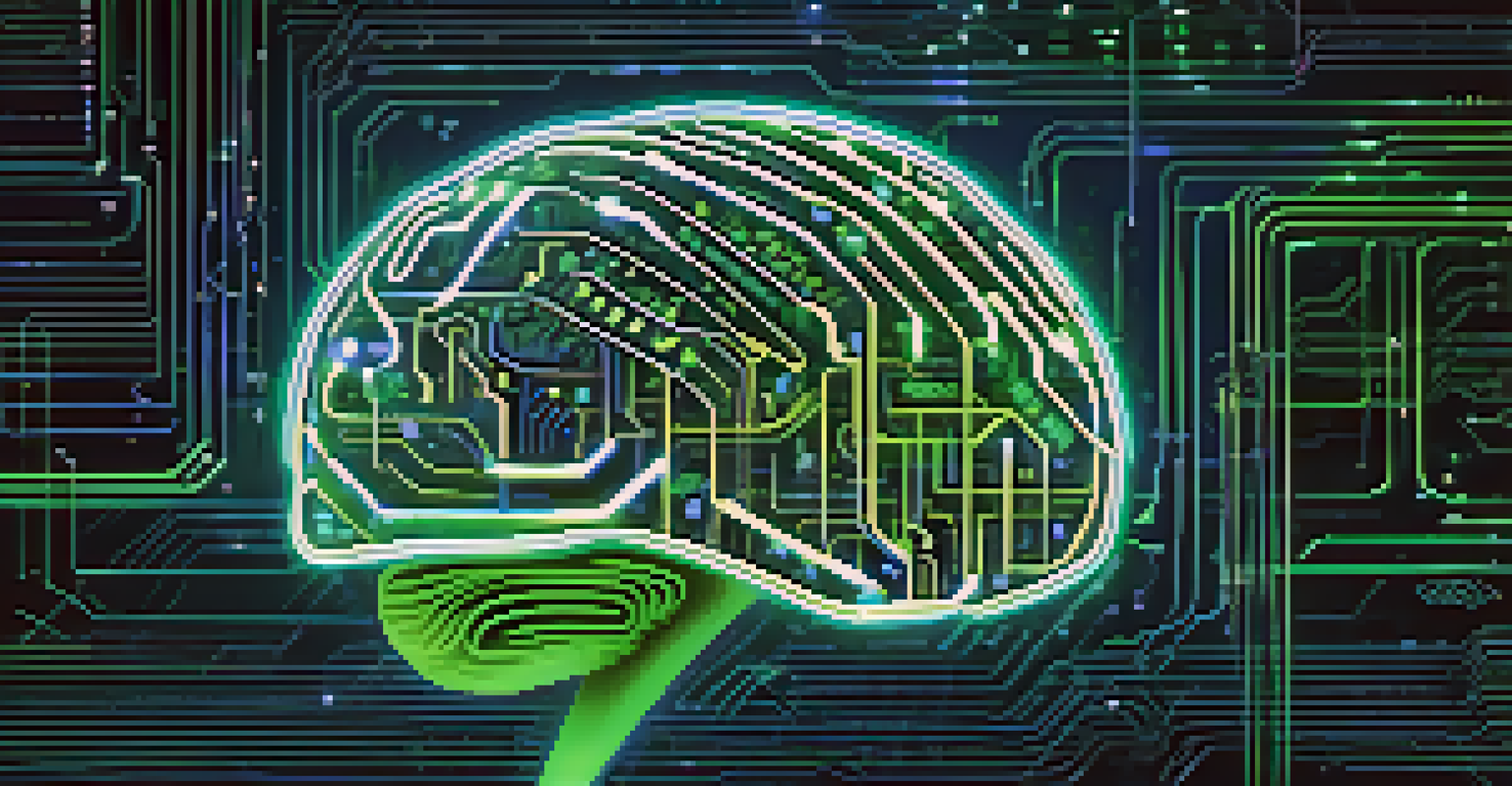How AI Enhances Ethereum's Smart Contracts for Better Security

Understanding Smart Contracts and Their Importance
Smart contracts are self-executing contracts with the terms written directly into code. On the Ethereum blockchain, they automate processes without the need for intermediaries, making transactions faster and more efficient. However, with this automation comes the risk of vulnerabilities that can be exploited, leading to significant financial losses.
Smart contracts hold the promise of making transactions more secure and efficient, but we must prioritize their security to realize this potential.
The importance of security in smart contracts cannot be overstated. A single flaw in the code can lead to unintended consequences, such as unauthorized fund transfers or contract malfunctions. This is where the integration of AI becomes crucial, as it can help identify and mitigate these risks before they become a reality.
By enhancing the security of smart contracts, AI not only protects users' assets but also builds trust in the entire Ethereum ecosystem. As more businesses and individuals adopt smart contracts, ensuring their safety becomes paramount for the future of decentralized applications.
AI-Powered Code Analysis for Smart Contracts
One of the primary ways AI enhances smart contract security is through automated code analysis. Traditional manual reviews can be time-consuming and prone to human error, while AI tools can quickly scan code for vulnerabilities and suggest improvements. This results in a more thorough and efficient examination of the smart contract's security.

For instance, AI algorithms can learn from past vulnerabilities and adapt their analysis techniques accordingly. By analyzing vast datasets of previous exploits, AI can recognize patterns that may indicate potential weaknesses in new contracts. This proactive approach helps developers address issues before deployment.
AI Enhances Smart Contract Security
AI tools provide automated code analysis and real-time monitoring, significantly improving the security of smart contracts.
Furthermore, AI-driven tools can also simulate various attack scenarios, allowing developers to see how their contracts would behave under different conditions. This not only enhances security but also provides developers with valuable insights to strengthen their code.
Machine Learning for Predictive Security
Machine learning, a subset of AI, plays a vital role in predictive security for smart contracts. By analyzing historical data and identifying trends, machine learning algorithms can predict potential vulnerabilities that may arise in the future. This forward-thinking approach allows developers to take preventative measures before issues occur.
The future of decentralized applications relies on our ability to secure smart contracts through innovative technologies like AI.
For example, if a particular type of contract has been frequently targeted in the past, machine learning models can alert developers to the increased risk associated with similar contracts. This enables a more proactive stance on security, which is essential in the rapidly evolving landscape of blockchain technology.
Moreover, by continuously learning from new data and incidents, these algorithms improve over time, making them even more effective at predicting and identifying vulnerabilities. This creates a dynamic security environment where developers can stay one step ahead of potential threats.
Enhanced Transaction Monitoring with AI
Another way AI boosts the security of Ethereum's smart contracts is through enhanced transaction monitoring. AI systems can analyze transaction patterns in real time, spotting anomalies that may indicate fraudulent activities. This capability is crucial for detecting and preventing attacks before they escalate into significant issues.
For instance, if a smart contract suddenly experiences a surge in transactions that deviates from its normal behavior, AI can flag this as suspicious. By doing so, it allows for immediate investigation and potential intervention to protect funds. This level of vigilance is particularly important in high-stakes environments where large sums of money are at risk.
Machine Learning Predicts Vulnerabilities
Machine learning algorithms analyze historical data to predict potential vulnerabilities in smart contracts, enabling proactive security measures.
Additionally, AI can learn from past incidents to improve its monitoring algorithms. As it processes more data, it becomes better at distinguishing between legitimate and malicious activity, further enhancing the security of smart contracts on the Ethereum network.
AI-Assisted Smart Contract Audits
AI can also streamline the auditing process for smart contracts, making it more efficient and effective. Traditional audits often involve extensive manual reviews, which can be both costly and time-consuming. By leveraging AI tools, developers can significantly speed up the audit process while maintaining a high level of thoroughness.
These AI-assisted audits can identify common vulnerabilities and suggest best practices for improvement. For example, they can flag coding errors or inefficient algorithms that could lead to security issues down the line. This not only saves time but also empowers developers to create more robust contracts.
Moreover, AI can provide ongoing audit capabilities, continuously monitoring smart contracts even after deployment. This ensures that any new vulnerabilities that emerge over time are quickly identified and addressed, maintaining the integrity of the contracts.
Real-World Examples of AI in Smart Contract Security
Several projects are already leveraging AI to enhance the security of smart contracts on Ethereum. For instance, companies like Quantstamp and OpenZeppelin utilize AI-driven tools for auditing and monitoring smart contracts. These platforms have demonstrated significant improvements in identifying vulnerabilities compared to traditional methods.
Another example is the use of AI in decentralized finance (DeFi) applications, where the stakes are particularly high. By employing machine learning algorithms, these platforms can detect unusual transaction patterns, helping to safeguard users' funds against potential attacks. This real-time monitoring is invaluable in the fast-paced world of DeFi.
AI Streamlines Contract Audits
AI-assisted audits make the auditing process for smart contracts faster and more effective, identifying vulnerabilities and suggesting improvements.
These real-world applications highlight the growing trend of integrating AI into blockchain technology, reinforcing the idea that AI is not just a buzzword but a practical solution for enhancing security in Ethereum's smart contracts.
Future Prospects of AI in Smart Contract Security
As the blockchain landscape continues to evolve, the role of AI in smart contract security is only expected to grow. With the increasing complexity of smart contracts and the rise in cyber threats, the need for advanced security measures is more critical than ever. AI's ability to adapt and learn makes it an ideal candidate for addressing these challenges.
In the future, we might see even more sophisticated AI tools that can autonomously manage smart contracts, continuously learning from interactions and user behavior. This could lead to a new era of self-healing contracts that automatically adjust their security protocols based on real-time data.

Ultimately, the integration of AI into Ethereum's smart contracts represents a significant step forward in safeguarding the decentralized ecosystem. By enhancing security measures, we can foster greater trust and encourage wider adoption of blockchain technology in various sectors.